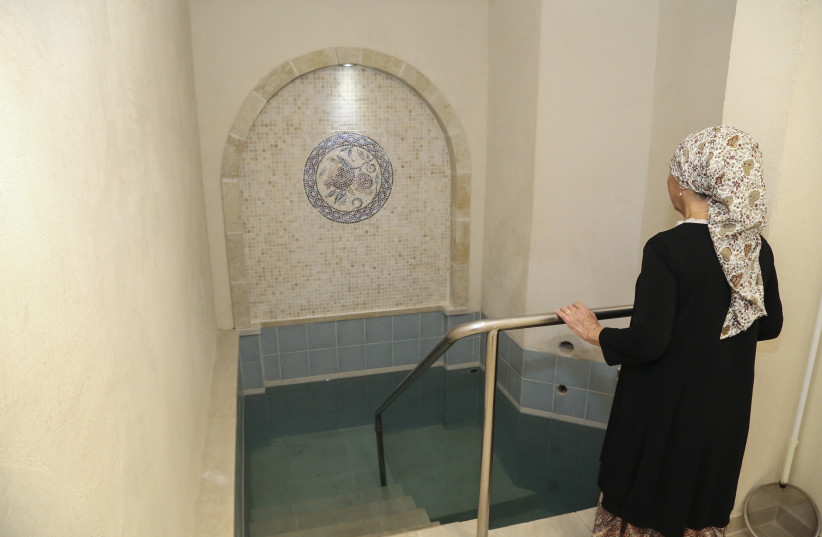ITIM publishes interactive map of Israel’s accessible mikvahs
An interactive map of accessible mikvhs in Israel has been published this week on the website of ITIM, a nonprofit committed to adapting Israel’s religious establishment to the diverse needs of the Jewish people.
Mikvahs, Jewish ritual baths, are a necessary part of traditional Orthodox Jewish life and are most often used by married women as they move out of their period of niddah (ritual impurity during and following a monthly period).
During niddah, many Orthodox married couples abstain from any physical touch or intimacy, going so far as to sleep in separate beds. Immersion in the mikveh is required to end the niddah period.
Unfortunately, immersion can be a highly dangerous or even simply inaccessible activity for women with physical disabilities who may be using mobility aids like canes or wheelchairs.
This is why ITIM put together the map of mikvahs across Israel that are accessible to those with a variety of disabilities.
 A new mikveh ritual bath in the Jewish settlement of Bat Ayin in Gush Etzion, West Bank, November 6, 2019. (credit: GERSHON ELINSON/FLASH90)
A new mikveh ritual bath in the Jewish settlement of Bat Ayin in Gush Etzion, West Bank, November 6, 2019. (credit: GERSHON ELINSON/FLASH90)ITIM’s website defined basic accessibility in a mikveh as:
- Accessibility throughout the building
- Accessible path from parking area to the entrance
- Accessible path to the bathrooms, which should themselves be accessible
- Accessible path to the mikveh itself
- Preparations underway for a lifting device that will allow disabled women to independently dip in the mikveh as well as shower alone
It further went on to define “full accessibility” as including all the above-mentioned requirements in addition to a fully-functioning lifting device already installed.
The legal right to a safe, accessible mikveh
Israeli women are legally entitled to an accessible mikveh in their area of residence, according to ITIM, and a woman who has none may contact the Religious Services Ministry or local municipal religious council and request it.
“It is important to note,” ITIM’s website explained, “that the law and regulations specify the conditions required of an ‘accessible mikveh,’ but in reality, there are mikvahs that claim to be accessible but do not meet the requirements of the law.”
The particular requirements are detailed in the Israeli law passed in 2013 which enforced additional regulations on religious institutions to provide equal access to people with disabilities. The law, per ITIM’s website, includes provisions for the dignity and privacy of disabled people, as well as their independence and safety.





Comments are closed.